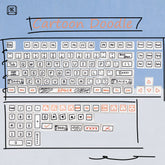Structure of the mechanical keyboard
The structure of the customized keyboard is divided into two categories: Case mount and Tray mount; the design is divided into two types: Plate and Plateless. Case mount, as the name suggests, is to fix the liner (positioning plate and PCB) on the shell. The Tray mount is fixed on the bottom plate of the bottom shell just like putting the dishes on the tray. The plate is a design with a positioning plate, and Plateless is what is often called "steel-free", without a positioning plate. Most of the Case mounts and Tray mount use screws to connect the positioning plate and the shell.
Tray mount

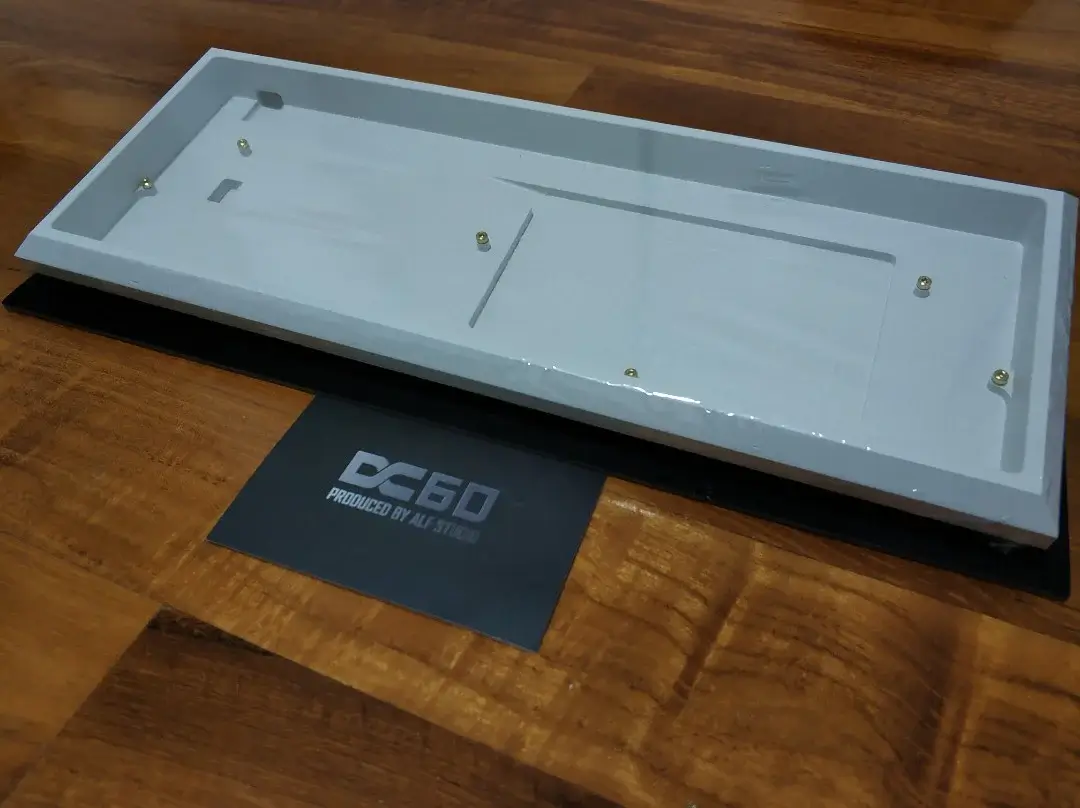
Tray mounts are a very simple and versatile structure. There is no distinction between the upper and lower shells of the keyboard and it generally consists of bottom shell + PCB + positioning board. The bottom plate of the keyboard shell has screw holes, and the screws pass through the positioning plate and the PCB to fix the entire keyboard. The PCB, the positioning board and the housing need to share the same screw position to fit together. GH60 is the most famous Tray mount specification, and it is also the "standard 60 arrangement" that is often said now. Any mass-produced 60 keyboards will be compatible with the screw holes of GH60, at least sharing 3 screws. Such as Poker, Anne and DC60. The earliest introduction of this installation method is the Vortex 60% keyboard.
Advantage
-
Low cost
-
Great compatibility (basically all standard specifications, including outlets)
Disadvantage
- Relatively less stable due to less rigid/solid structures
- Less rigid/solid construction overall and less uniform than Case Mount kits, so less consistent feel
- Since the screw holes need to have a certain height, the cavity sound will be relatively loud
Case mount
Case mount is a very solid and relatively high-end structure that fixes the inner tank (positioning plate and PCB) directly to the outer shell. This mounting structure is often used in relatively expensive mid/high-end kits and is laid out by old Korean custom kits. There are many kinds of Case mounts. The only difference is that there are differences everywhere.
Advantage
- The inner tank and the outer shell are fixed very solidly, and the hand feeling is very consistent
- There is no need to open screw holes between the positioning board and the PCB, easier to wire
Disadvantage
- Enclosures must be custom-made (with few specific standards)
- The material of the positioning board has a great influence on the typing experience
Top frame mount/Top mount
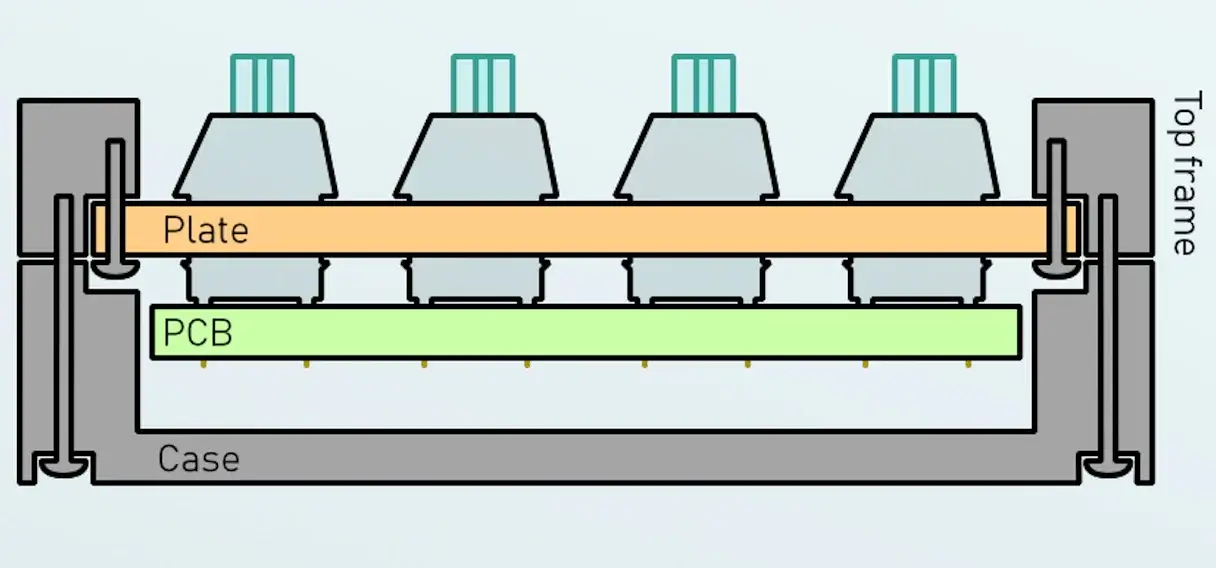
The common ones are Matrix 2.0 and OTD 360 series. This alignment plate has mounting tabs with screw holes that thread onto the top cover, which in turn screws onto the bottom case to complete the assembled keyboard. This structure is widely used in middle and high-end customized keyboards due to its excellent hand feeling and relatively easy processing.
Bottom mount
Contrary to the top mount, the liner will be fixed to the edge of the bottom case.


This structure is a bit like a Tray mount, but it is not fixed to the bottom shell, so it can get more and more uniform rigid structural support. At the same time, this structure does not require the participation of the upper cover, so it can be designed as a suspended appearance. Personally, I think it will be a little harder than the Top mount. The common ones are Input Club White Fox. The more famous is the KMAC series.
Sandwich mount
Fix the positioning plate firmly between the upper cover and the bottom case

Sandwich mount sounds very delicious, and it is indeed very attractive. This fixation is more complicated than it sounds, as the positioning plate fits snugly around the edge of the case to ensure the positioning is perfectly centered while still allowing a bit of room for flex. Since the positioning plate is attached to both the top and bottom shells, the sandwich mount can better dampen bottom vibrations, resulting in a more exotic and pleasing bottoming sound. The most famous design is the OTD 356 mini. There are also many high-end kits using this design, such as Cary Studio's Verspa.CR (VCR) and TYL's customized KN2.10.
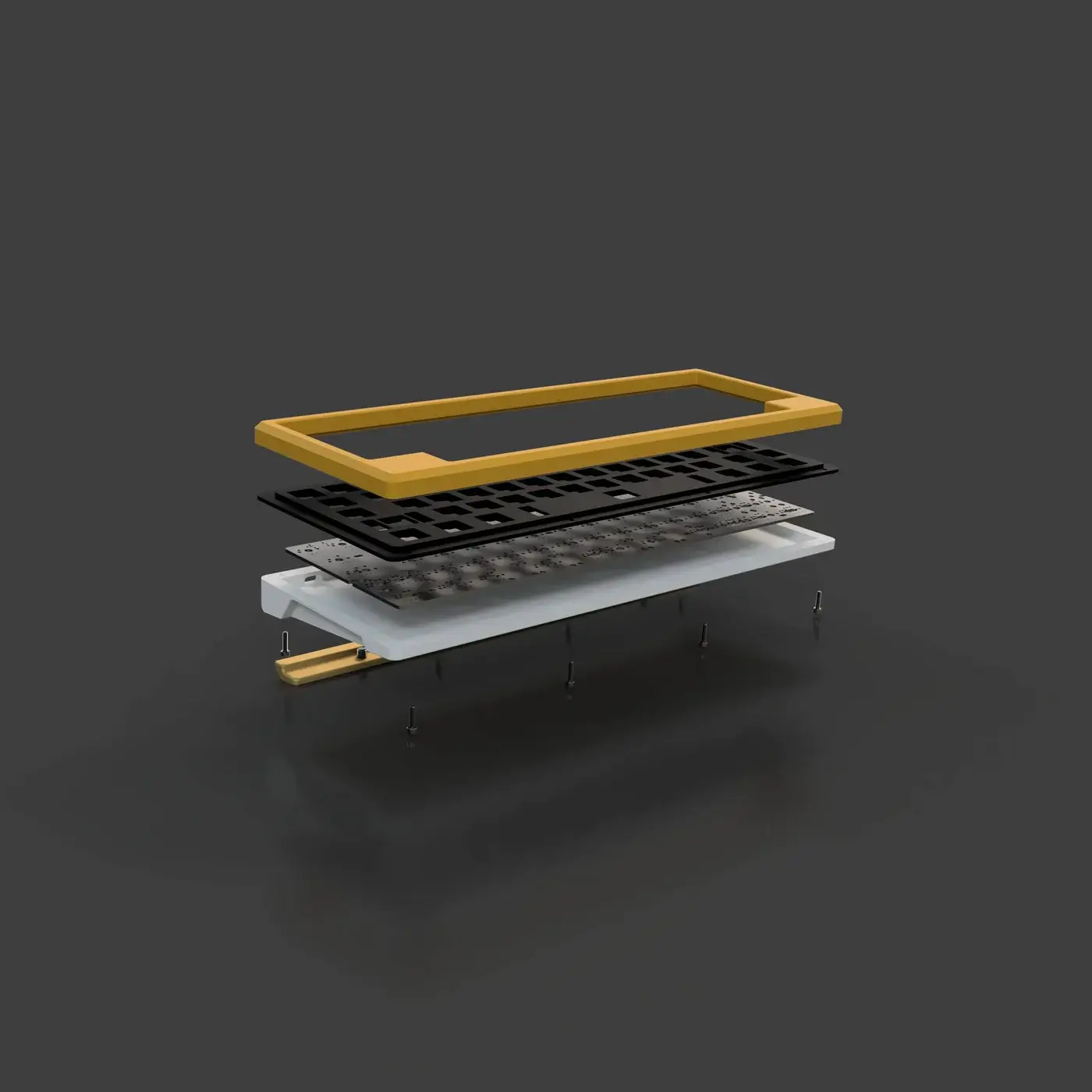
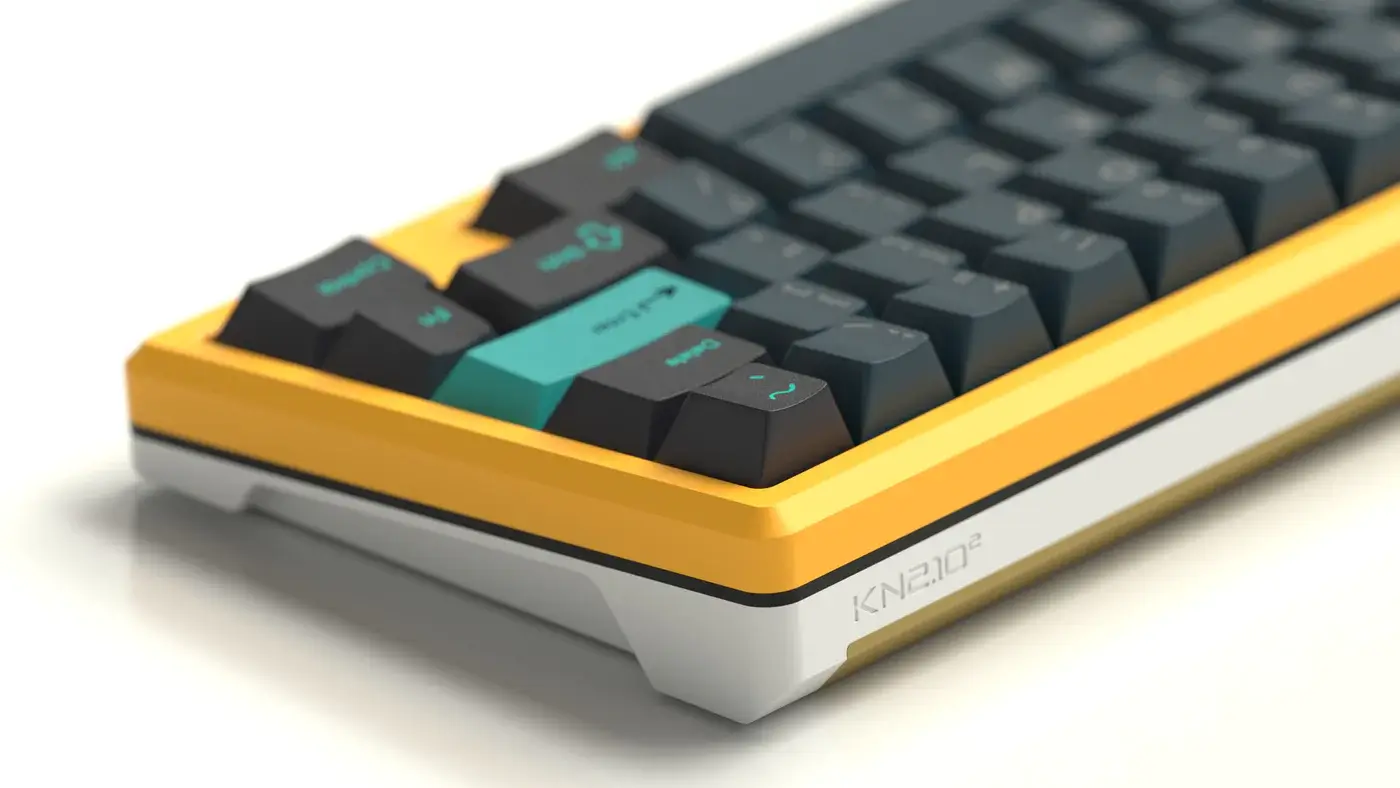
Integrated mount
Integrated design of upper cover and positioning plate

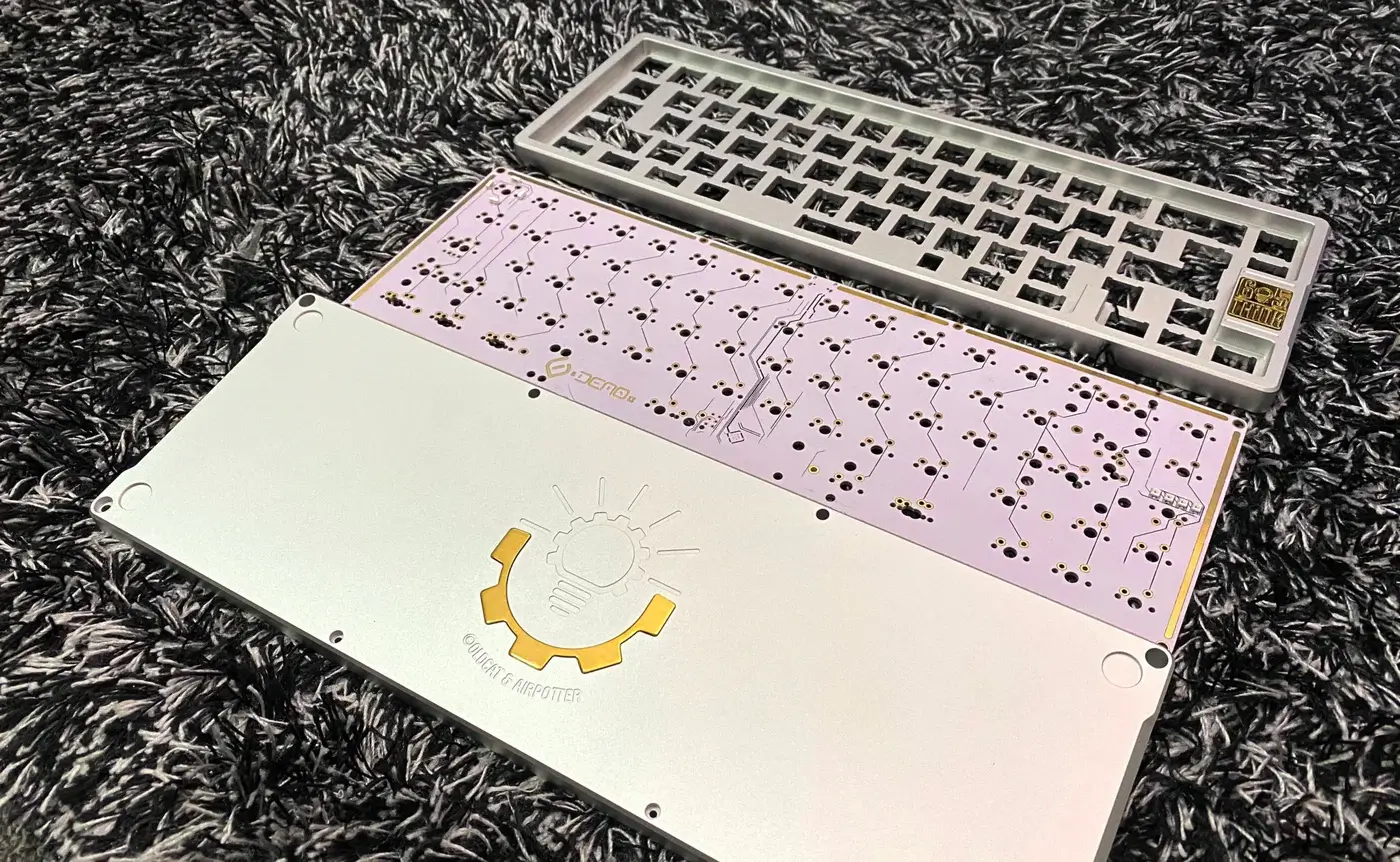
Integrated mounts do not have replaceable positioning plates to match the upper/lower case. This is because the positioning plate and top case are milled from the same block of aluminum/pc/titanium or whatever. So as to achieve a texture similar to a sandwich structure. Due to the integrated mount the positioning plate is continuously constrained by the surrounding elements. This provides a firm bottoming feel similar to a sandwich. But that's about it, because it's only bound at the top, not all around like a sandwich. Integrated mounts are usually more dynamic. The processing cost is slightly higher than the top/Bottom mount because cnc has more man-hours.
Gasket mount
The screws only string together the shells, and the positioning plate is clamped in the middle by the pressure of the two shells

The screws only string together the shell, and the inner tank has no rigid structure and screw support, it is all pressed in the middle of the keyboard by the rubber and the upper and lower covers with precision. The feel will be very uniform, and because the rubber strip is fixed, there will be cushioning in both vertical directions up and down, thus providing a warmer feel. It's no wonder that this lineup has been so popular recently. It was first made by TYL customization team, Volcano 660. At present, the famous new series of 7V designed by industrial designer Gok and the Primus customization kit designed by TYL team leader Louis and top designer Thesiscamper will be shipped soon. Melody 80 is also worth looking forward to. The Infinity 75, which was sold some time ago, was produced by a small team full of enthusiasm from zF, and I believe it will not let us down. The cost is very high, because it involves multiple proofing calculation tolerances and rubber cushion mold opening, as well as screening hardness. So ordinary people can't do it, only a very senior team can do it.

Plateless mount
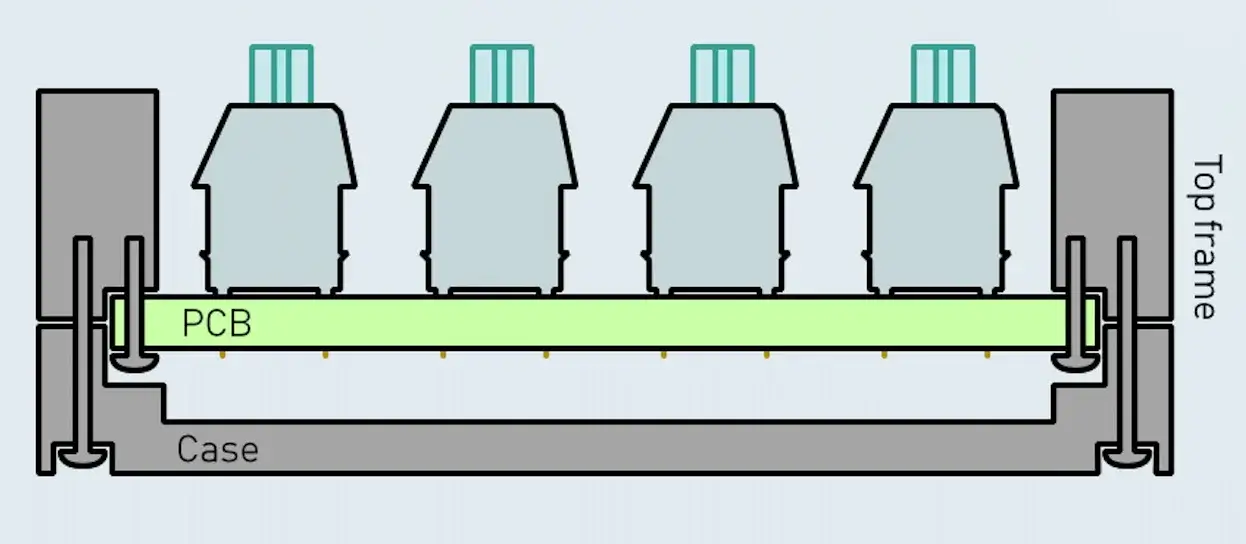
Why put this at the end? Because it's a design, not a structure. It can be Top mount, Bottom mount, Gasket mount, or even Tray mount. The only difference between it and others is that there is no positioning plate. When pressing the shaft body, it feels like hitting the PCB, which is very unique and flexible. This design requires high precision of PCB opening, and generally does not support hot plugging. Otherwise, the shaft may be crooked, or the shaft body may be uprooted when the keycap is pulled out. After all, how can such a gentleman's design allow such rough mistakes to happen?






